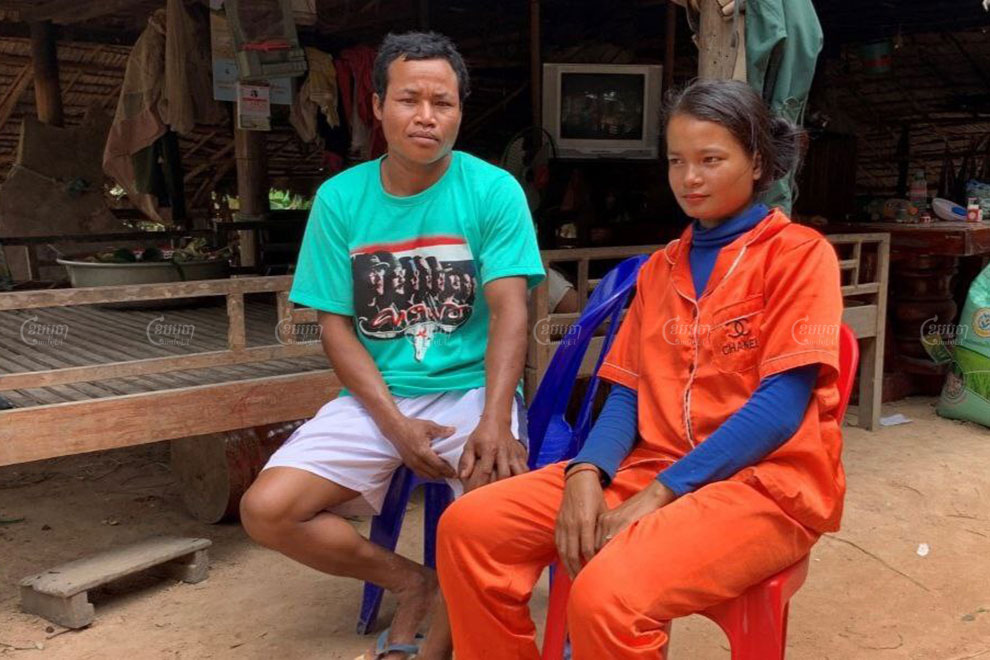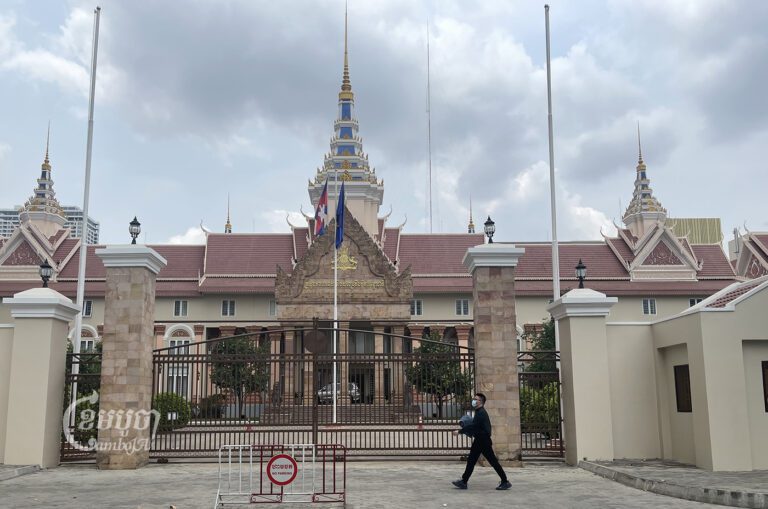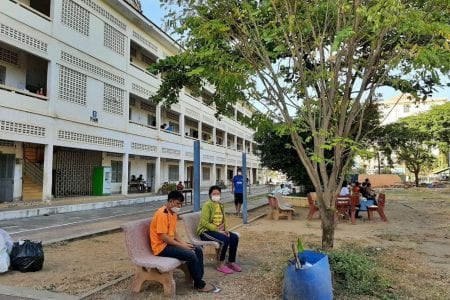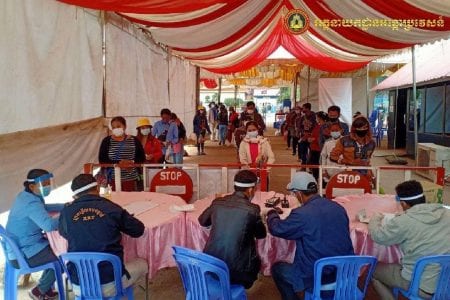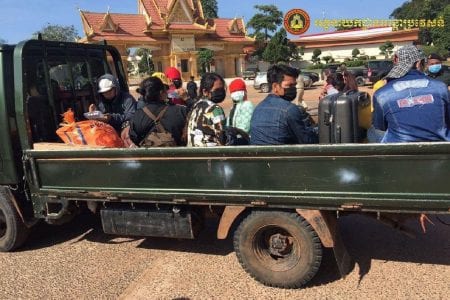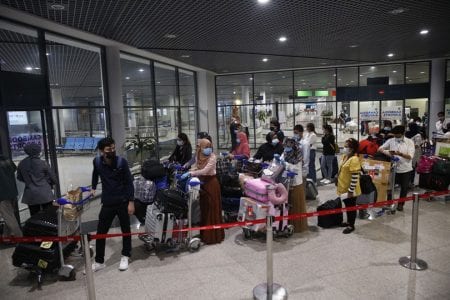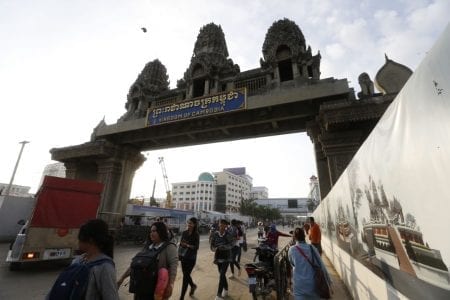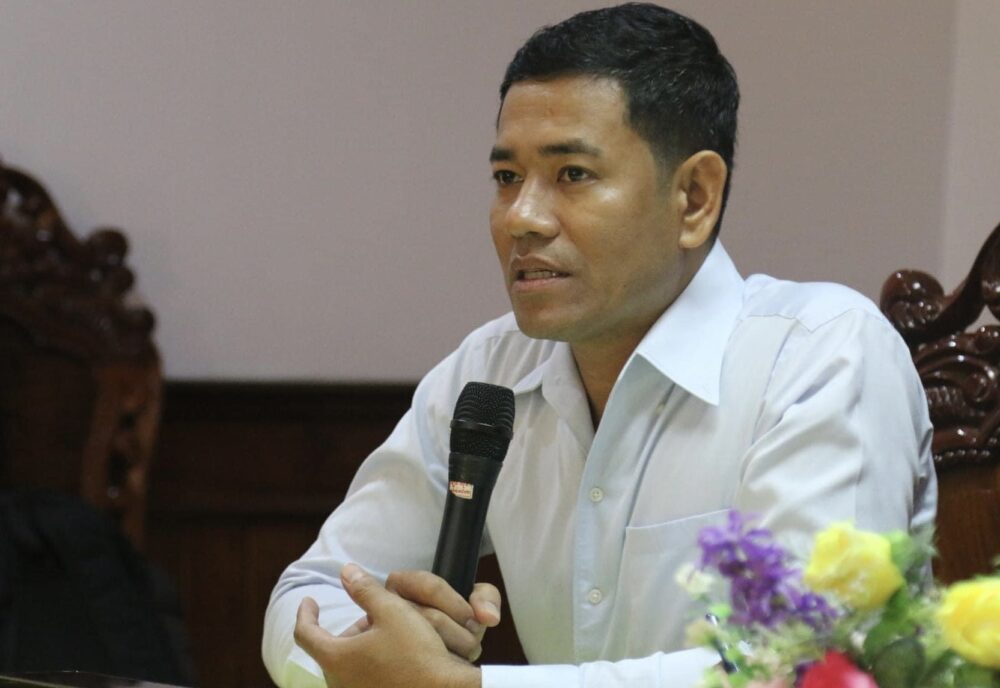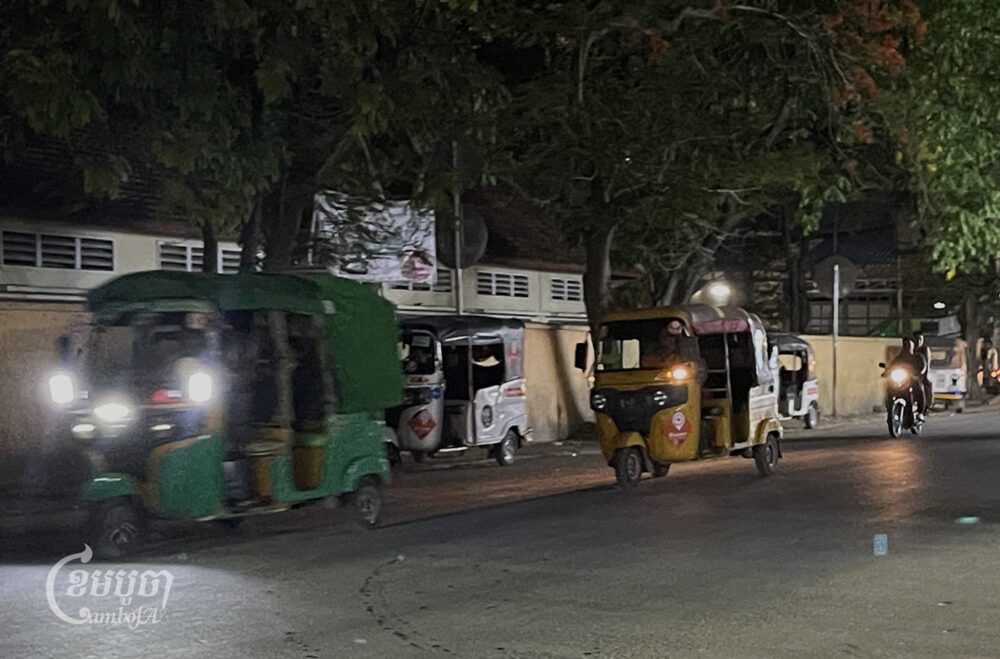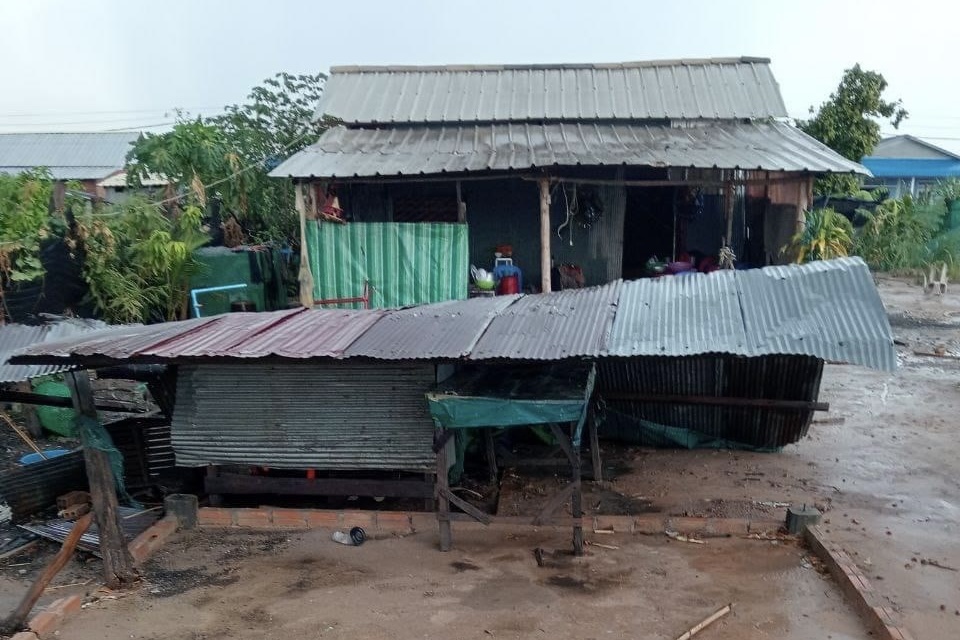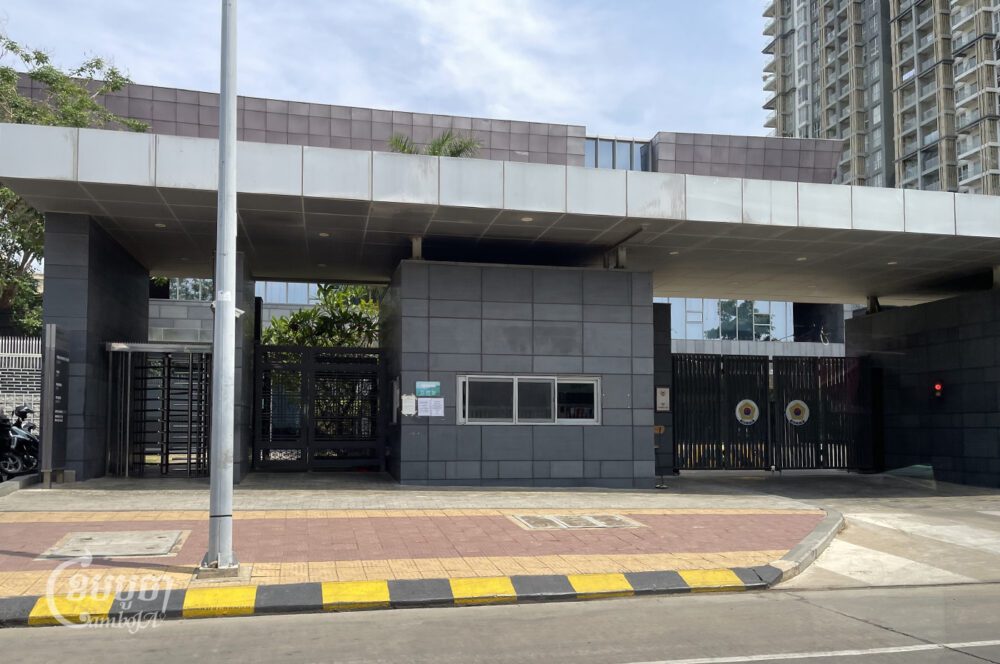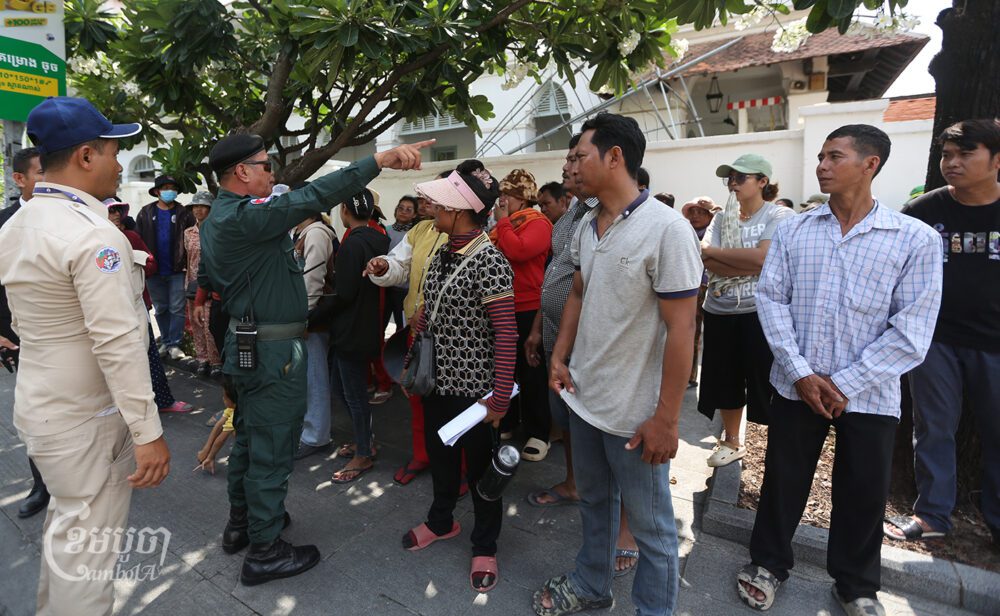Siem Reap province – Pai Pun was excited when he was invited to join a meeting in May on a new work opportunity at Kantraing commune office in Siem Reap province’s Prasat Bakong district after returning to Cambodia from Thailand at the start of the Covid-19 lockdown there two months earlier.
He and 30 other migrant workers sat close together on long wooden benches while officials from the provincial agriculture department asked them if they were interested in growing vegetables or raising farm animals.
“I told them [commune officials] I am very interested,” he recalled in an interview earlier this month. “I was so happy, but now I feel there has been no progress because I did not hear from them.”
“They said they would give me seeds but I don’t know what kind of seeds they would give me,” he said. “I told them I don’t have land. I don’t know where and when to start [farming].”
In a speech in Prey Veng province’s Peam Ro district last week, Prime Minister Hun Sen said returning migrant workers and others who are currently unemployed should consider farming to boost the agricultural sector.
“I appeal to everyone, garment workers, and migrant workers who have returned from Thailand to take part in agriculture,” he said.
Last month, Labor Ministry spokesman Heng Sour said roughly 110,000 workers had returned from Thailand alone between March and May after the country went into lockdown to prevent the spread of Covid-19. Sour could not be reached for further comment this week.
Yang Saing Koma, an agriculture expert said it was unlikely that Cambodians returning from abroad would start their own agricultural endeavours.
“It is such a huge number [of people], but we don’t think they could start in agriculture on their own,” he said. “They will want to look for employment from others.”
However, some provincial officials have said they have projects in the works that would help migrant workers start farming.
Tea Kimsoth, director of Siem Reap’s provincial agriculture department, said that nearly 20,000 migrant workers had returned to the province since the start of the Covid-19 outbreak.
The program to help returning migrants left unemployed due to the outbreak was initiated by the government, he said, with the Ministry of Agriculture instructing the provincial level to enact it.
“Basically it is both the government and ministry of agriculture’s plan and we are the ones who directly implement it,” he said. “The minister told us to help migrant workers who are affected because of Covid-19 by helping them with agriculture work.”
However, he noted that the project does not have its own budget, and funding must come from current programs at the provincial agriculture departments.
“For example, our department uses the budget from the existing projects which have similar activities, and add more activities so that we could do more than before,” Kimsoth said. “We are expanding the project related, for example, to animal raising.”
He said that the department was waiting until around next month for the budget to be prepared before they could begin following up on previous meetings held to garner interest from migrants.
“We cannot say if it is enough, but the goal is to minimize the effect of Covid-19, although some migrant workers cannot do it because they do not have land to grow on,” he added.
Bun Tounsimona, director of the Kandal provincial agriculture department, said his office had plans to work with 300 families, most of whom are migrant workers returning from Thailand. The department had a budget from existing projects at the department of around $10,000 to offer assistance for those families to raise crops and animals, he said.
Earlier this month, officials had arranged for about 100 recently returned migrant families to visit farmers in the area who are successfully raising their own chickens.
“We know that things may take a very long time to return to normal after Covid-19 and we don’t know when they will be able to return to Thailand or other countries, so we told them that raising chickens is better than migrating back to Thailand,” Tounsimona said.
Tounsimona said that as part of the Kandal agriculture department’s program, the recently unemployed migrant workers will be given baby chickens and taught how to raise them, as well as how to make vaccinations and chicken feed, with assistance provided by farmers.
“It could take around six months to fully launch the project”, he said. “If it’s going great, we will also help to find the market for them to sell their chickens”, he added.
“If they don’t migrate [back to Thailand] and they choose to raise chickens, it’s a success for the government and the ministry that took the effort to carry it out,” he said.
Migrant workers who remain in Cambodia say they are interested in farming but are unsure if the programs meant to support them will be effective.
Former migrant worker Hoy Chorn spent about six years in Thailand before returning to Cambodia two years ago with her husband to seek better employment opportunities.
She said officials visited her home last month asking if she is interested in raising chickens, saying they could offer chicks, cages and other assistance in raising the birds.
“Last Friday I joined a meeting about how to raise chickens and they brought us to a chicken farm…I am very interested,” she said. “I think I will start small at first, and if it’s working we will expand it.”
Pun, 32, had worked in Thailand since 2009 and was employed on a sugar plantation before returning in March to Siem Reap province where he has been stuck since the border to Thailand closed later that month.
While working as a sugar farmer, Pun said he was able to send home around 1,000 baht ($31) every two months to help his parents and son buy food. After returning to Cambodia, Pun found a job earning about 30,000 riel ($7) per day on a construction site, but it didn’t last.
“I could earn around $200 for 30 days, but now there is no more work,” he said. “I really want to go back to Thailand with my wife. I am very bored because we have no work to do. I want to grow vegetables like lettuce,” he added.
He said he does not think the government has a reliable plan to support migrant workers.
“I have tried to wait for other [farming] work and I cannot depend on that,” he said. “I also would need a lot of money and a big plot of land to do it, too.”
“As soon as the border opens, I will go back to Thailand,” he added.
Saing Koma urged the government to coordinate directly with agricultural companies or farms that would be able to offer employment to migrant workers, which would include providing financial support to expand their business.
“The Ministry of Labor should coordinate with farm owners or institutions that have not felt the impact of Covid-19 to take on more employment in agriculture,” he said.
“We should divide and support [workers] who are interested. If we just give them chickens and vegetable [seeds] it’s just to help them for a while but to help them sustain a living is important,” he added.


